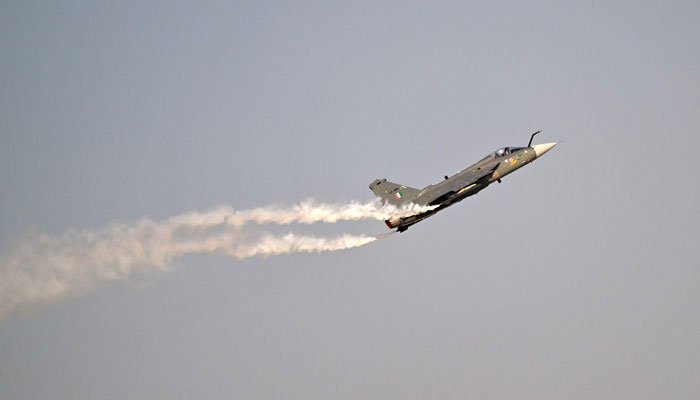Israel is allegedly using white phosphorus munitions in Gaza.
Israel committing war crimes in Gaza, As Israeli warplanes continued attacking Gaza for the seventh consecutive day on Friday, martyring over 1,500 Palestinians — including women and children — Pakistan expressed deep concerns over the cycle of occupation, oppression and violence in Palestine.
Earlier today more than 1 million residents of Gaza City were warned by the Israeli military to evacuate and move to the south in the next 24 hours, as it deployed its tanks near the Gaza Strip amid fears of a major ground offensive.
The International Committee of the Red Cross (ICRC) says fuel powering emergency generators at hospitals in Gaza could run out within hours and the United Nations World Food Programme (WFP) warned food and fresh water were running dangerously low.
More From FactFile: Israel orders evacuation of 1.1 million in north Gaza within 24 hours, says UN
“The human misery caused by this escalation is abhorrent, and I implore the sides to reduce the suffering of civilians,” ICRC regional director Fabrizio Carboni said.
Speaking at the UN General Assembly’s sixth committee meeting in New York, Second Secretary of Pakistan’s permanent mission to the UN Rabia Ijaz said the rapidly deteriorating and dire humanitarian situation in Gaza due to the indiscriminate aerial bombardment and an inhumane blockade of food, fuel and medicines, as collective punishment of the entire Palestinian population of Gaza by Israeli occupation forces is unacceptable. These actions amount to war crimes and crimes against humanity, she added.
The official said that the current cycle of aggression and violence is a sad reminder and a direct consequence of over seven decades of illegal Israeli occupation, aggression, and disrespect for international law, including UNSC resolutions that recognise the inalienable right to self-determination of the Palestinian people.
Ijaz said the international community must work together for a just, comprehensive and lasting two-state solution with a viable, sovereign and contiguous State of Palestine on the basis of pre-1967 borders, with Al Quds Al-Sharif as its capital.
Exercising its right of reply, the second secretary said Jammu and Kashmir is an internationally recognised disputed territory and is not at all a so-called integral part of India nor is it India’s domestic matter.
She said the UN Security Council in its resolutions has decided that the final disposition of Kashmir shall be determined by its people through a United Nations supervised plebiscite. She said India accepted this decision and is bound to comply with it in accordance with Article 25 of the UN Charter.
Ijaz further said India has no right to take any unilateral action to change the status of the territory. She said India is shamelessly engaged in crushing the legitimate Kashmiri quest for self-determination with an occupation army of 900,000 troops. Since 1989, she pointed out that over a hundred thousand Kashmiris have been killed, and a systematic settler-colonial project is underway and the tale of atrocities continues.
‘Israel using white phosphorus in Gaza’
The Human Rights Watch (HRW) has sounded the alarm over Israel’s alleged use of white phosphorus munitions in its recent military operations in Gaza and Lebanon, igniting international concern over the potential consequences of these actions.
As tensions escalate in the region, the HRW’s report states, “The use of white phosphorus in Gaza, one of the most densely populated areas in the world, magnifies the risk to civilians and violates the international humanitarian law prohibition on putting civilians at unnecessary risk.”
Israel’s military responded to the accusations by claiming they were “currently not aware of the use of weapons containing white phosphorus in Gaza.” However, they refrained from providing any comment on the allegations regarding their use of these munitions in Lebanon.
This is not the first time Israel has faced allegations of using white phosphorus in Gaza. Similar incidents occurred during the 2008-2009 conflict, resulting in civilian casualties and international criticism. HRW’s report rekindles these concerns and draws attention to the ongoing use of this incendiary substance.
The HRW substantiated its claims with video evidence from Lebanon and Gaza, recorded on October 10 and 11, showing “multiple airbursts of artillery-fired white phosphorus over the Gaza City port and two rural locations along the Israel-Lebanon border”.
White phosphorus is not outright banned, but using it in densely populated civilian areas, such as Gaza, may constitute a violation of international humanitarian law.





